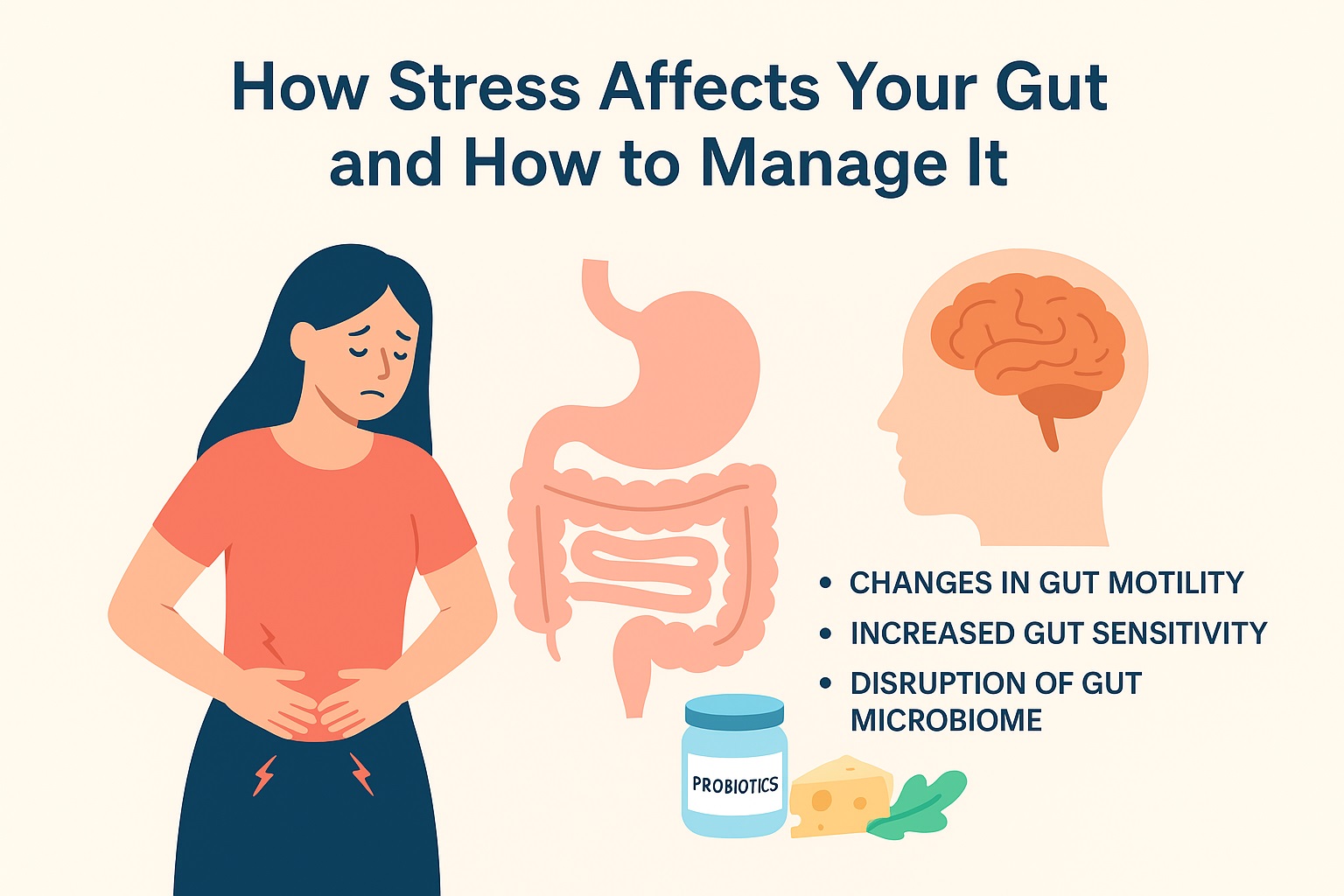Traveling is exciting—it opens the door to new cultures, experiences, and cuisines. But for many people, it also comes with an unpleasant side effect: digestive problems. Whether it’s constipation on a long flight, bloating from unfamiliar foods, or traveler’s diarrhea, your gut health often feels the impact of life on the road.
The digestive system is sensitive to changes in routine, diet, and environment. By understanding how travel affects your gut and learning simple strategies to support it, you can enjoy your trip without constant discomfort.
Why Travel Disrupts Digestion
Your digestive system thrives on routine. When you travel, several factors can throw it off balance:
1. Changes in Diet
Trying new foods is part of the travel experience, but sudden shifts—spicy dishes, rich sauces, or unusual ingredients—can irritate the gut.
2. Dehydration
Airplane cabins, long car rides, and hot climates can all cause dehydration. Without enough fluids, digestion slows and constipation becomes common.
3. Disrupted Sleep Schedule
Jet lag and late nights interfere with the circadian rhythm, which regulates digestion. Poor sleep also increases gut inflammation.
4. Stress and Anxiety
Even the excitement of travel can stress the body. Stress hormones like cortisol affect gut motility and may trigger cramps or diarrhea.
5. Exposure to New Bacteria
Different regions have unique water and foodborne bacteria. While locals may tolerate them, your body may not, leading to traveler’s diarrhea.
6. Less Physical Activity
Long periods of sitting—on planes, buses, or trains—slow gut movement, increasing the risk of constipation and bloating.
Common Digestive Issues While Traveling
- Constipation: From dehydration, inactivity, and disrupted routines.
- Bloating: Caused by air travel, high-sodium foods, or overeating.
- Diarrhea: Often linked to contaminated water or food.
- Acid Reflux: Triggered by irregular eating patterns or heavy meals.
- Gut Microbiome Imbalance: Rapid dietary changes can disturb healthy bacteria.
Gut Health Tips for Traveling
Fortunately, with preparation and mindfulness, you can support your digestive system and minimize discomfort.
1. Stay Hydrated
- Drink at least 2–3 liters of water daily.
- Carry a refillable water bottle.
- Limit alcohol and caffeine, as they dehydrate the body.
2. Pack Probiotics
Probiotics replenish healthy gut bacteria and can help prevent diarrhea and bloating. Options include:
- Supplements: Convenient capsules for travel.
- Foods: Yogurt, kefir, or probiotic drinks if available.
Tip: Start taking probiotics a week before your trip to strengthen gut defenses.
3. Eat Mindfully
- Introduce new foods gradually.
- Avoid overeating, especially before long flights.
- Choose high-fiber meals (fruits, vegetables, whole grains).
4. Move Your Body
- Walk during layovers or rest stops.
- Stretch or do light yoga in your hotel room.
- Take short walks after meals to aid digestion.
5. Prioritize Sleep
- Adjust your sleep schedule before traveling across time zones.
- Use earplugs and eye masks to improve sleep quality.
- Aim for 7–8 hours of rest to keep your gut rhythm stable.
6. Manage Stress
- Practice deep breathing, meditation, or journaling.
- Give yourself downtime between activities.
- Stay flexible—rigid schedules can increase stress.
7. Be Smart About Street Food
- Choose vendors with high turnover (freshly cooked food).
- Avoid raw vegetables washed in questionable water.
- Stick to bottled or filtered water.
Probiotics While Traveling: Why They Matter
Your gut microbiome faces constant changes on the road. Probiotics act as a protective shield:
- Prevent Traveler’s Diarrhea: Some strains, like Saccharomyces boulardii, are effective in reducing risk.
- Strengthen Immunity: Helps fight off harmful pathogens from unfamiliar foods.
- Support Regularity: Prevents constipation caused by inactivity.
- Reduce Bloating: Maintains a balanced gut environment.
When choosing probiotics for travel, look for:
- Shelf-stable options (no refrigeration needed).
- Multi-strain formulas for broader protection.
- Clinically studied strains like Lactobacillus and Bifidobacterium.
What to Eat for a Healthy Gut While Traveling
When eating out or trying new cuisines, keep these gut-friendly foods in mind:
- Probiotic Foods: Yogurt, kefir, sauerkraut, kimchi, kombucha.
- High-Fiber Options: Apples, bananas, oats, lentils.
- Hydrating Choices: Water-rich foods like cucumbers, watermelon, and oranges.
- Anti-Inflammatory Ingredients: Ginger, turmeric, green tea.
A Sample One-Day Gut-Friendly Travel Meal Plan
Breakfast (Airport or Hotel):
- Plain yogurt with banana and chia seeds
- Herbal tea or water
Lunch (On the Go):
- Grilled chicken salad with olive oil dressing
- Whole-grain crackers
- Sparkling water
Snack (While Sightseeing):
- Handful of almonds and an apple
- Kombucha if available
Dinner (Local Cuisine):
- Steamed fish with vegetables and rice
- Fermented side dish (like kimchi or pickled veggies)
- Herbal tea for digestion
Emergency Gut Health Travel Kit
Consider packing a small kit with:
- Probiotic supplements
- Electrolyte packets (for dehydration/diarrhea)
- Fiber supplements or chia seeds
- Herbal teas (peppermint, ginger, chamomile)
- Reusable water bottle
Conclusion
Traveling may challenge your digestive system, but it doesn’t have to ruin your trip. By staying hydrated, managing stress, moving regularly, and supporting your gut with probiotics, you can keep digestion on track and fully enjoy the journey.
Remember: your gut thrives on balance. A few mindful habits before and during travel can make the difference between an uncomfortable trip and a smooth, energized adventure





“Very important! Traveling can definitely disrupt normal eating habits and affect digestion. I’m curious to see what tips and scientific insights are shared here.”